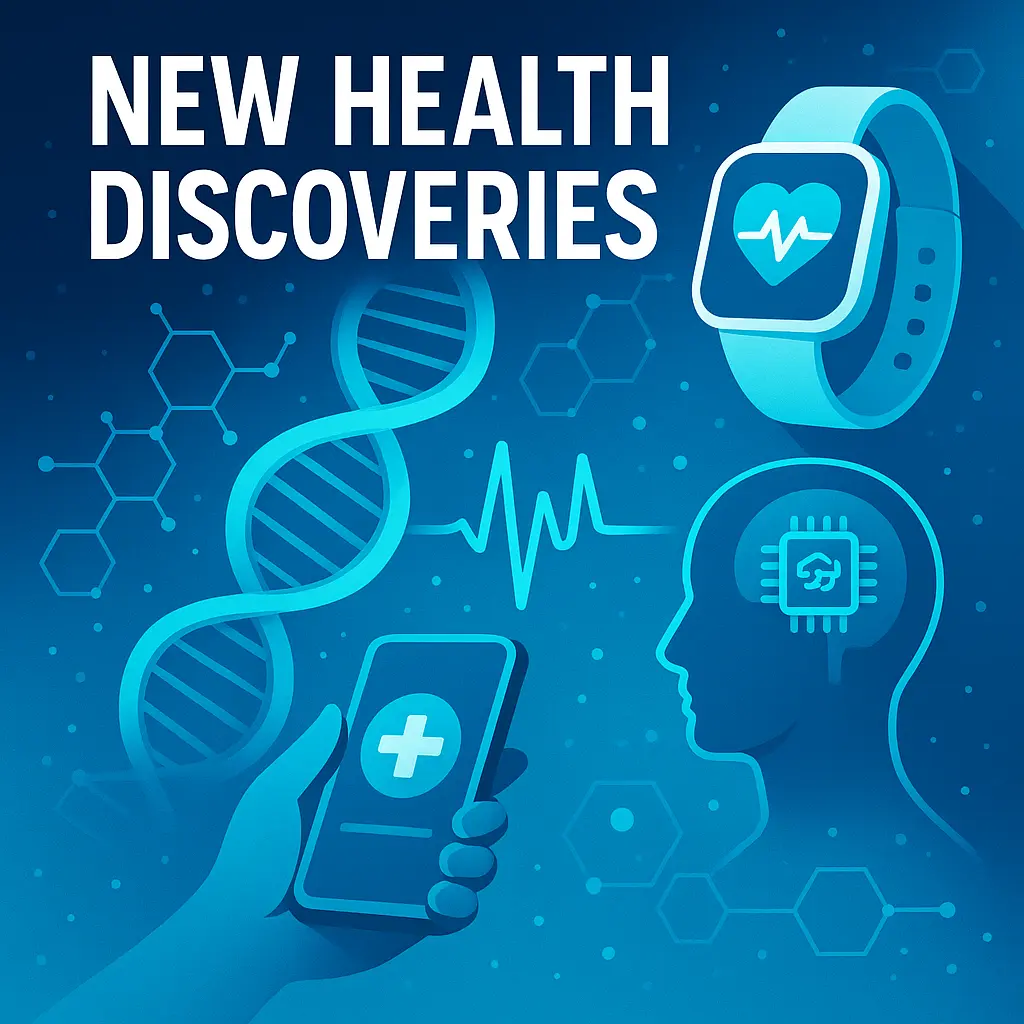1. Aging Is More Complex Than We Thought
Midlife Aging Spikes
Researchers have found that the body doesn’t age in a straight line. Instead, major changes often happen in midlife, especially in blood vessels, where proteins shift in ways that may speed up aging.
Cellular Rejuvenation
Scientists are experimenting with ways to “reset” old cells. Early studies show it may be possible to reverse some signs of aging at the cellular level—hinting at future therapies that could slow the process down.
Repurposing Drugs for Longevity
By studying how aging-related genes interact, researchers are identifying existing medicines that might extend lifespan. Instead of starting from scratch, this method could speed up the development of anti-aging treatments.
2. Smarter Diagnostics: Catching Diseases Earlier
Blood Tests for Early Detection
Advances in blood-based biomarkers are making it possible to detect diseases like cancer, heart problems, and neurological conditions much earlier—when treatments are more effective.
Dementia and Alzheimer’s Risk
New findings suggest that factors like air pollution can trigger harmful changes in the brain. At the same time, improved testing methods may soon predict dementia or Alzheimer’s risk years before symptoms appear, giving people more time to take preventive steps.
3. Technology Is Transforming Health Monitoring
AI and Wearables
AI-powered tools are helping spot health conditions earlier, while wearable devices can track sleep, blood sugar, heart rhythms, and stress levels in real time. This means health care is becoming more personalized and preventative.
Micro-Interventions
Scientists are testing small, everyday sensory cues—like sounds, lights, or phone alerts—that could help reduce stress, sharpen focus, or even delay early signs of cognitive decline. These tiny interventions may become part of daily wellness in the near future.
4. Environment, Lifestyle, and Health
The Role of Pollution and Diet
Air quality, diet, and everyday habits are proving to be more important than ever. Even low levels of pollution are linked to long-term risks for heart and brain health, while balanced nutrition remains one of the best defenses against chronic illness.
Massive Health Projects
Large-scale studies are underway to track millions of people over time. By combining genetics, lifestyle, and health data, these projects aim to identify risk factors early and create personalized prevention strategies for the future.
👩💻 Why Gen Z Should Care
Personalized prevention is the future. Medicine is shifting from “one-size-fits-all” to tailored health solutions.
Habits today matter tomorrow. The way you eat, sleep, and live now will have huge impacts decades down the line.
Tech is your ally. From wearables to AI-driven tools, technology is making it easier than ever to stay healthy.
Aging might not be fixed. Scientists are finding ways to slow, and maybe one day reverse, parts of the aging process.
🧠 Bottom Line
The latest health discoveries show a future where medicine is smarter, faster, and more personalized. From catching diseases before they start to potentially slowing the aging process, the next generation of health care is about prevention and empowerment. For Gen Z, this means one thing: the choices you make today could keep you healthier, sharper, and stronger far into the future.

Comments 0
No comments yet. Be the first to share your thoughts!
Leave a comment
Share your thoughts. Your email will not be published.